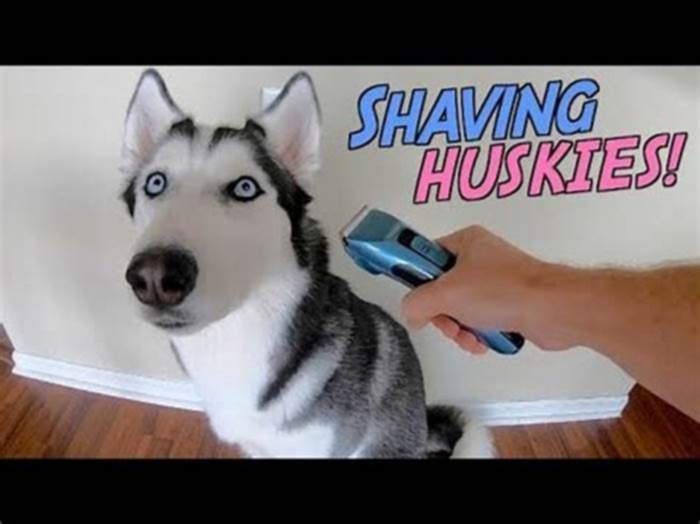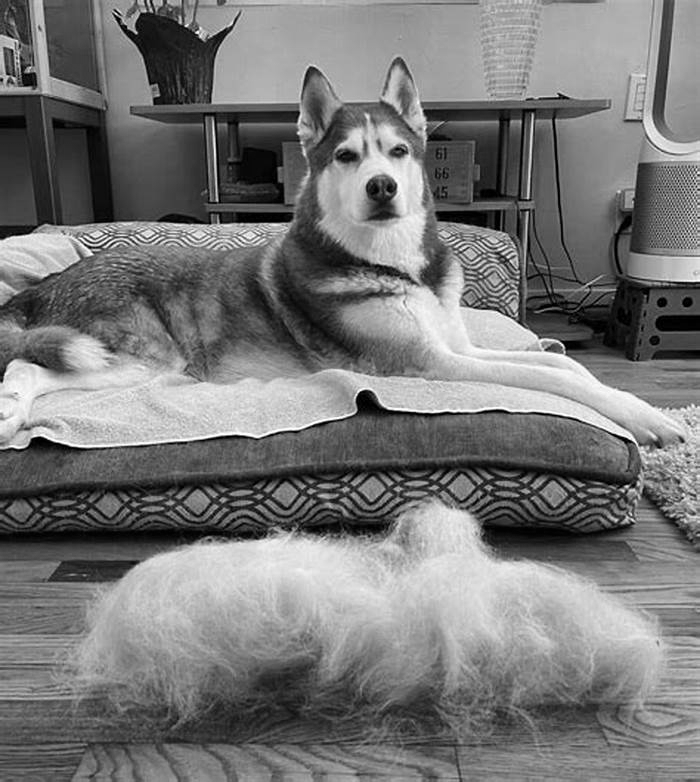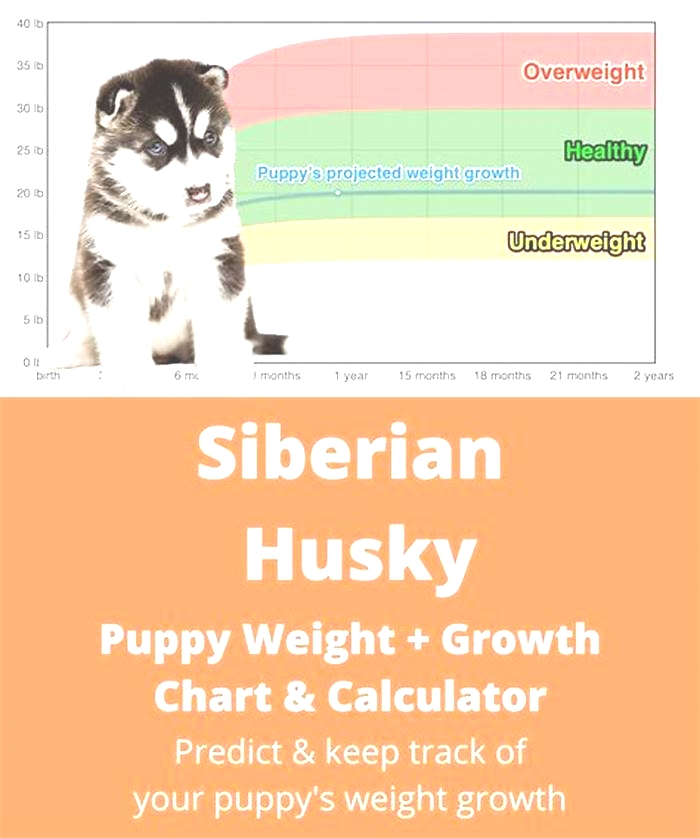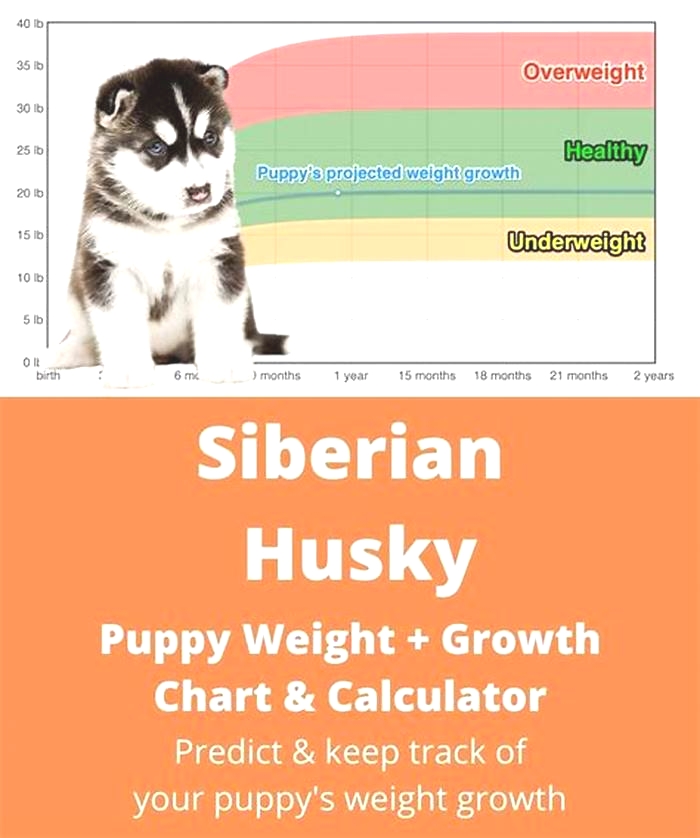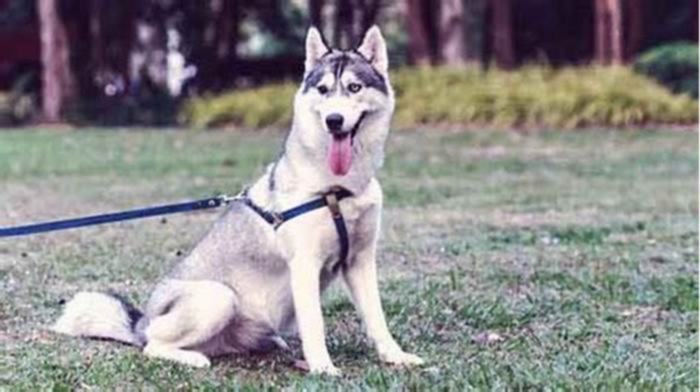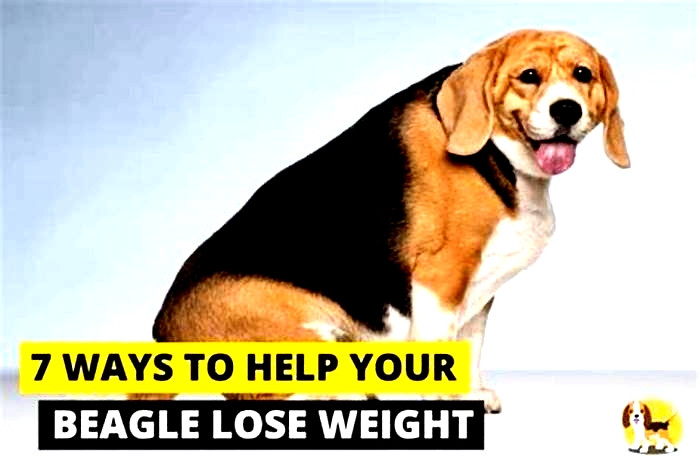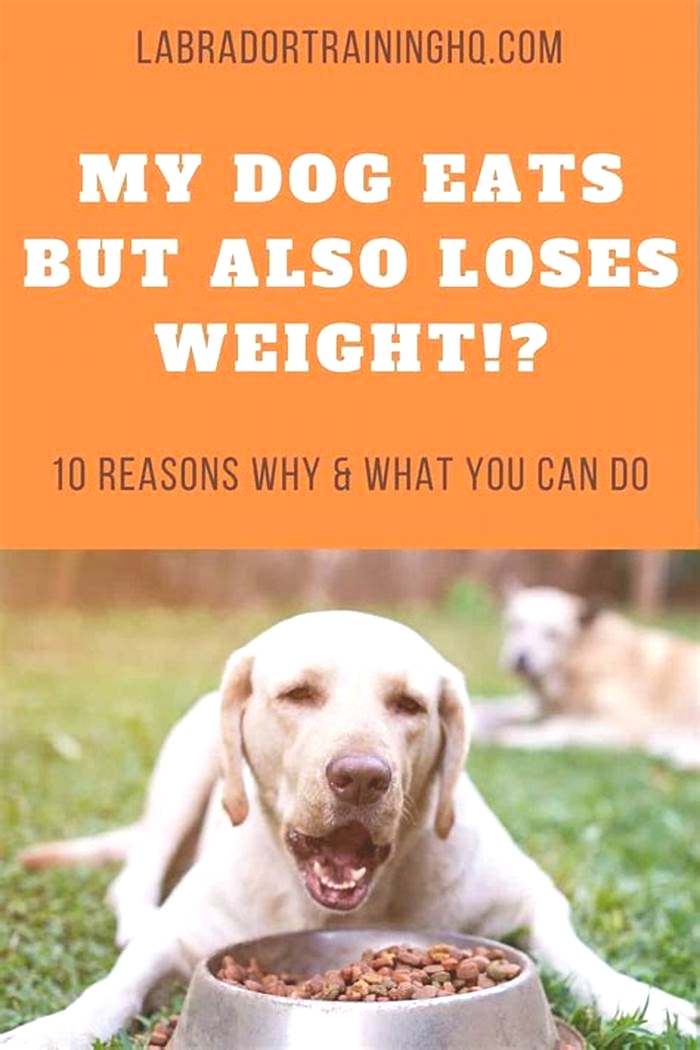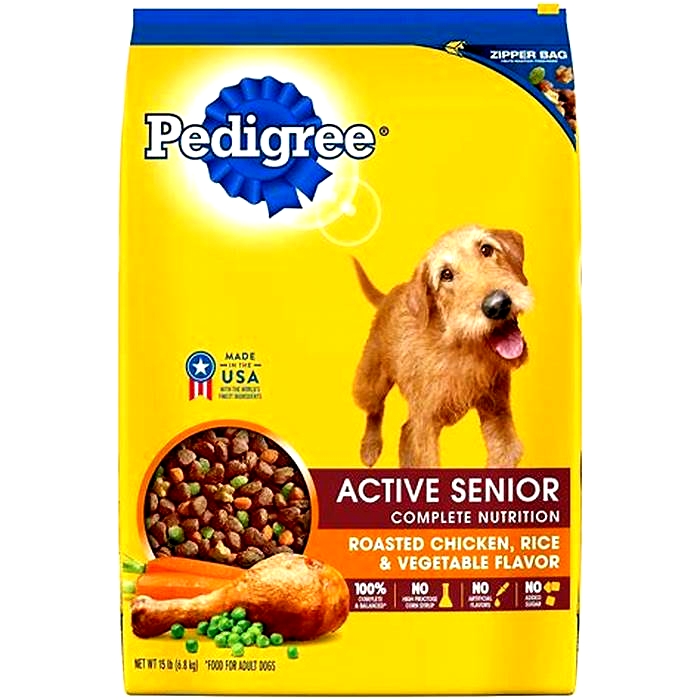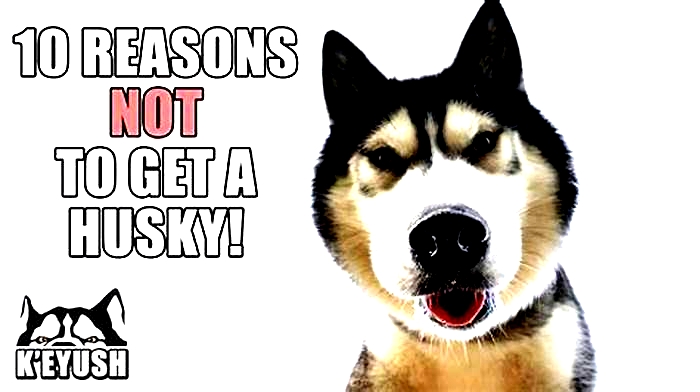Why is my husky losing so much hair
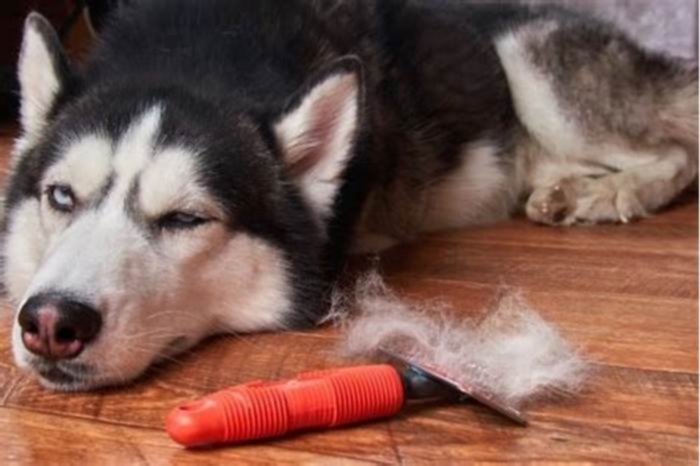
Why Is My Siberian Husky Losing Hair?
The Siberian Husky has some very special qualities and these arent just related to its physical appearance which is obviously a reason why so many are attracted to this breed in the first place.
They also have a certain set of requirements that mean they are a breed of dog thats not suited to anyone but the most hardened and professional of owners and typically not for the first-time owner.
One of the questions that seems to keep cropping up is related to the Huskys coat and usually, this is asked prior to actually getting one but if you have one and suddenly notice your house has a thick layer of fur all over it, it can be a bit of an annoyance!
The Siberian Husky will lose their hair as they are genetically designed to shed their undercoat once or twice a year, depending on where you live. The Huskys coat will shed most of the year but (usually) twice a year their coat will blow (come out in clumps) and will re-grow either thinner or thicker, depending on what time of year it is.
The main reason why your Husky is losing hair
The main reason why your Siberian Husky is losing hair is down to the fact that theyve been designed to do just this! The Huskys coat will blow (more on this later) once or twice a year which will be the reason why every time you stroke them during this time you will see an explosion of fur which will get everywhere.
You will notice that this fur will come off in quite big clumps in your hands and this might initially alarm you but it shouldnt, its quite normal.
The Siberian Huskys Coat
You see, the coat of the Siberian Husky was designed for a very specific purpose. For hundreds (or maybe even thousands) of years, the Husky lived with the Chukchi people in Northern Asia (the Chukchi Peninsula to be a little more precise).
Here, temperatures are, how shall we put this a little bit chilly. It was not unusual for things to get as low as -70F!
You need a special type of dog (and person) to be able to survive in these kinds of conditions and the Husky (they were not known as the Siberian Husky until they actually left Siberian) was this type of dog.
The Husky had (and still has) a two-layered coat consisting of a dense primary coat (this is the undercoat) and a somewhat thicker overcoat, which consists of guard-hairs.
This outer coat serves a very important purpose, for starters it provided an extra layer of insulation for the Husky in the cold conditions but also, in the summer months it prevents harmful radiation from the Sun hitting the Huskys skin.
Not only this but the guard-hairs guard the Husky from insects, preventing bites and subsequent infection. So, you can see that it is most useful and certainly should not be cut off!
What Is Blowing?
When we talk about blowing in relation to a canine, we refer to the seasonal loss of their coats. Just before winter approaches, they will shed their dense undercoat. Although the Husky loses hair all year around, you will notice a significant increase to this loss during this time (and before summer).
Their fur will come out in clumps and unless you are grooming frequently (you should be) youll find it scattered throughout your home, including on your dinner
The reason why they shed their coats before winter is that their previous coat now needs an upgrade! The summer coat is quite thin (although it still helps to protect their skin from the sunlight) and will be replaced by a thicker winter coat.
A similar thing will occur in the Spring when their thick winter coat blows out and is eventually replaced by the thinner, summer coat. It really is quite clever.
If youre wondering how the coat knows when to swap to either a summer or winter coat, its triggered by changes in their hormones that are in-turn related to the amount of daylight they encounter.
When daylight is reducing its an indicator that the winter coat will soon be required and when it is lengthening then it is a cue for the summer coat.
Why Does The Siberian Husky Need Their Thick Coat?
Well, you could argue that they dont but this is dependent on where the Husky lives. Its unlikely that you will live with them in a climate that shares any resemblance to its Siberian origins. So, although they certainly dont, technically, need their thick coat in most climates, you cant do anything about it so you just need to manage it.
They are a dog that can overheat, if not properly looked after, at temperatures of around -0F, which is still a temperature that most of us dont experience.
So, to answer the question the Siberian Husky doesnt need their thick coat in most climates but then arguably, should the Husky even be owned in hot climates? Well, yes of course, they can be owned in hotter climates than in Siberia, I mean pretty much everywhere is hotter than Siberia, right?
The point here is that you just need to be a bit more careful with them in warmer climates. Make sure that when theyre running around outside they get plenty of shade, plenty of rest and plenty of fluids!
What other reasons can cause hair loss in a dog?
So, hopefully, you should now be well aware that the dog you have chosen, the Siberian Husky, is well known for losing its fur. Particularly twice a year, when the Husky blows their coat and unless you are grooming regularly (daily during these times) this is by far the most common reason why your Husky is losing its hair.
However, its not the only reason and despite these being unlikely, I think its right that we should list a few of the most common other reasons.
- Allergies although you have a breed of dog that loses hair often and in high volumes, if it is not related to this then the next most likely reason would be allergy related. Although, this is still quite unlikely with the Husky as these allergies are often caused by mites or other insects and the Huskys guard coat is pretty good at protecting them from these.
- Infections slightly less likely is an infection, which can also be caused by insect bites or a fungus such as ringworm. A symptom of ringworm can be obvious ring-shaped areas of hair loss.
- Injuries if your Husky has an injury where a joint comes into contact with a hard surface, then the impacted area can often result in a loss of hair.
There are a few other issues that can cause this but they are so rare it is not worth mentioning here.
When Should You Contact Your Vet?
If you suspect that your Husky is in discomfort then you should contact your vet. The regular molting and blowing of their coats will not phase them one bit and they will continue to act as normal.
However, if you dont believe the loss of hair is related to this or if you notice that your Husky is acting unusually and this change in behavior coincides with a loss of hair then you should seek professional advice.
One thing to mention which could save you time is to take photos of the affected areas. When you speak to your vet, offer to send a photo. Most of us have mobile phones these days but its still rare that we utilize them to their potential.
Being able to send photos to your vet could potentially save you money and stress but at the very least it will help your vet to identify the root cause a lot quicker than if they saw your dog for the first time when you brought them in!
Summary
Hopefully, this article has helped you understand why your Husky loses so much hair. Its most likely not anything unusual as this is just what they do.
My best advice would be to try and get into the habit of grooming them frequently, ideally once a day. If you dont, then youll soon find fur in the most unusual of places!
Finally, if youre wondering whether you can give a Siberian Husky a haircut check out the link!
Why Is My Husky Losing Clumps of Hair: (When To Worry)
Its easy to become alarmed if your husky starts shedding in clumps and patches of hair. This isnt supposed to happen, right?
Before panic sets in, its essential to understand why this may be happening.
In this article, well discuss everything you need to know about hair loss in Huskies.
Personally, Ive dealt with both healthy and unhealthy hair loss in huskies for over a decade. Ill explain everything I know below to help your husky get back on track. Though, please remember Im not a veterinarian.
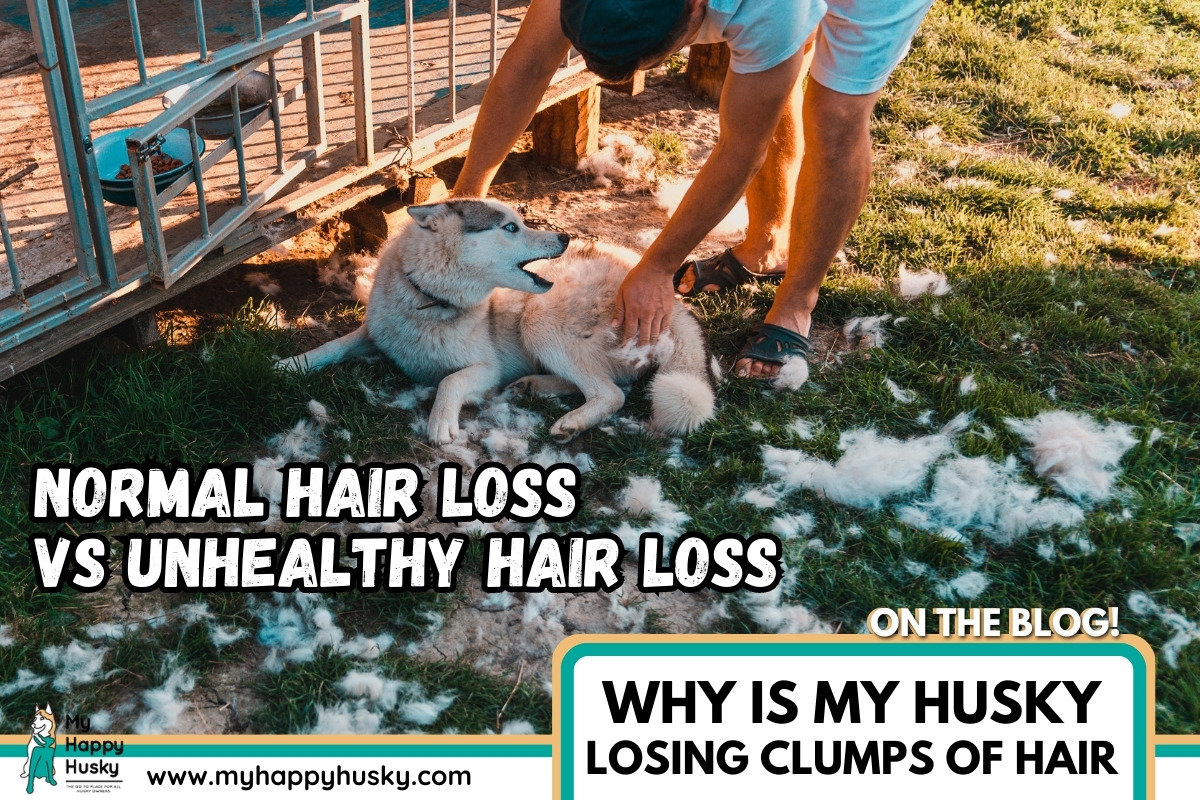
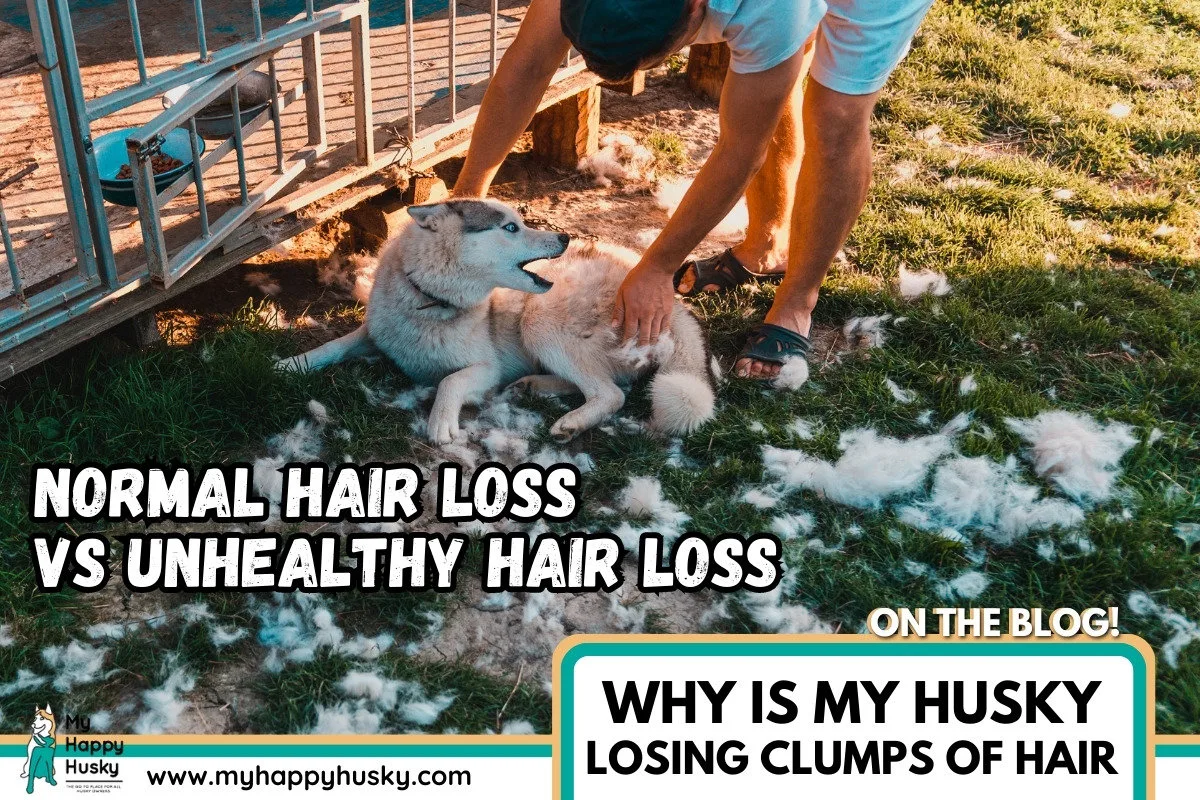
The photo above is an example of a regular coat blow believe it or not yup!
Normal Shedding Vs. Unhealthy Hair Loss
Lets start with the most important part of this question first, normal hair loss vs excessive and unhealthy hair loss. As huskies shed a lot anyway it can be difficult to know precisely whats normal shedding or a coat blow vs unhealthy hair loss.
Coat blowing
Huskies, like other cold-weather breeds, have a double coat consisting of a dense undercoat and a longer topcoat. Twice a year, typically in spring and fall, Huskies will blow their undercoat. This process means they shed the old undercoat heavily, making way for new hair growth. This is a completely normal process and may appear as if your Husky is losing clumps of hair. However, its just your Huskys way of adapting to the changing seasons.
Identifying unhealthy hair loss
While coat blowing is a natural process, there are times when hair loss can indicate a health issue. Unhealthy hair loss typically presents differently from a normal coat blow. It can appear patchy, uneven, or accompanied by other symptoms like skin irritation, inflammation, or changes in behavior. Your Husky might also seem uncomfortable, itchy, or more tired than usual. Additionally, if you suddenly see your huskys exposed skin, then this is absolutely not normal.
Is it normal for huskies to lose actual clumps of hair?
Sometimes yes, and its perfectly normal during a coat blow to see a lot of clumps of dead fluffy hair on the floor (like in the photo above). However, when this might indicate a problem is if the clumps of hair are not following the usual coat blow season, is accompanied by other things like severe itching, clear skin irritation, and changes of behavior. Knowing whether the hair loss is healthy or unhealthy is very contextual and owners must consider multiple things.
Related: Short Haired Huskies: What You Need to Know About Them
7 Reasons for Unhealthy Hair Loss In Huskies
Now lets explore some reasons why your Husky may be experiencing unhealthy hair loss.
1. Skin Infections
Bacterial and fungal skin infections, such as those caused by Staphylococci bacteria or Malassezia yeast, can lead to hair loss. These infections often come with other symptoms, like redness, inflammation, itching, and sometimes an unpleasant odor. They usually require treatment with antibiotics or antifungal medications prescribed by a vet.
2. Allergies
Allergies are a common cause of hair loss in dogs. They can be allergic to many things, including certain foods, environmental factors like pollen or dust mites, or parasites like fleas. Allergic reactions can cause itching and inflammation, leading dogs to scratch or lick excessively, which can result in hair loss.
3. Parasites
External parasites, such as fleas, ticks, or mites, can cause significant discomfort and lead to hair loss. Scabies, caused by the Sarcoptes scabiei mite, can cause extreme itching and subsequent hair loss. Demodectic mange, caused by a different kind of mite (Demodex), can also result in hair loss, though it is typically less itchy.
4. Autoimmune Diseases
Certain autoimmune diseases can cause hair loss in dogs. These conditions occur when a dogs immune system mistakenly attacks the bodys own cells. In diseases such as lupus or pemphigus, this attack can target the skin and hair follicles, leading to hair loss.
5. Hormonal Imbalances
As previously mentioned, hormonal imbalances, such as hypothyroidism or Cushings disease, can cause hair loss in dogs. These conditions interfere with the normal function of the dogs metabolism and can affect the health of the dogs coat.
6. Nutritional Deficiencies
Poor nutrition can also contribute to hair loss in dogs. Essential fatty acids, proteins, and certain vitamins and minerals are all necessary for healthy hair growth. A deficiency in any of these nutrients can lead to a dull coat and hair loss.
7. Certain Medications
Some medications can cause hair loss as a side effect. Chemotherapy drugs, for instance, can lead to hair loss. If you notice hair loss after starting a new medication, its important to discuss this with your vet.
Lets discuss below when its crucial to see a vet.
When to See a Vet
Its crucial to consult your vet if your Huskys hair loss is accompanied by other signs of illness such as lethargy, changes in appetite, behavior changes, skin irritation, or if the hair loss seems sudden or extreme.
Your vet will likely perform tests to determine the cause of the hair loss and prescribe appropriate treatment.
When to see a vet:
- Your husky experiences noticeable behavioral changes
- Your husky is suddenly lethargic
- Your husky refuses food
- You can see patches of skin
- Your husky is excessively scratching and irritated
- You can see skin irritation
- The hair loss is suddenly extreme and clearly not like regular shedding
Can We Solve This Issue at Home?
Some hair loss problems can be managed at home with the right care and attention. But of course, if you suspect that your husky is acting differently or shows other negative symptoms, waste no time in taking him or her to the vet.
Lets run through some basic, yet crucial things that affect skin and coat health.
A Balanced Diet
The right nutrition plays a crucial role in maintaining a healthy coat for your Husky. Here are some nutrients that are important for a healthy coat:
- Protein: As the main component of hair, a diet high in good quality protein can help maintain a healthy coat and reduce hair loss. Look for dog food that lists a high-quality source of protein, like chicken or beef, as the first ingredient.
- Omega-3 and Omega-6 Fatty Acids: These essential fatty acids play a key role in skin and hair health. They are found in fish, flaxseeds, and certain special dog foods and supplements. Consult with your vet to see if a supplement would be beneficial.
- Vitamins and Minerals: Vitamins like A, E, and Biotin, and minerals like Zinc, can contribute to a healthy coat. These are usually adequately provided in a balanced dog diet but check with your vet if you suspect your dog may be lacking.
Remember, sudden changes in diet can upset your dogs stomach, so any changes should be made gradually and under the guidance of a vet.
Regular Grooming
Regular grooming not only helps reduce the amount of hair shed around your house, but it also helps distribute the natural oils in your Huskys coat, promoting healthier skin and hair. Heres a basic grooming routine:
- Brushing: Brush your Huskys coat for 5-10 minutes per day using an undercoat rake and a slicker brush to remove loose hair and prevent mats. These brushes are gentle and forgiving.
- Bathing: Bathing your Husky every 2-3 months is generally sufficient. Overbathing can strip the natural oils from their coat and dry out their skin, leading to more hair loss. And always use a natural ingredient dog shampoo to avoid removing the coats healthy oils!
- Checking for Parasites: During grooming, check for any signs of parasites like fleas or ticks. Look for signs of redness, irritation, or tiny moving specks in their coat.
Parasite Control
Regular use of parasite control products is crucial. There are many options available, such as spot-on treatments, oral tablets, or special collars. Your vet can recommend the best option for your Husky. Remember, even if your dog is primarily indoors, they can still get parasites.
Environmental Control
If your Husky has allergies, reducing exposure to allergens can help control hair loss. This might include regular cleaning of your home to reduce dust mites, using hypoallergenic dog beds, or limiting certain outdoor activities during high pollen seasons.
Mental Health
Stress or anxiety can lead to excessive grooming and subsequent hair loss in dogs. Providing a calm, secure environment, regular exercise, mental stimulation, and plenty of attention can help reduce stress in your Husky.
How Long to Solve this Problem?
The time it takes to resolve hair loss will depend on the cause.
For instance, if its due to a seasonal coat blow, the process might last a few weeks, but if its due to an underlying health issue, it could take several months.
Generally, a healthy Husky will start to regrow hair within a few weeks of resolving the underlying cause, whether thats changing their diet, resolving a skin infection, or getting control of fleas.
Remember, patience is key. It may take several weeks or even a few months to see a noticeable difference.
Final Thoughts
Hair loss in Huskies can be perfectly normal, but it can also be a sign of an underlying health problem. As a responsible Husky owner, its crucial to monitor your dogs hair loss and look for any other signs of illness.
When in doubt, always consult with your vet. They can help identify the cause and provide the right treatment. With appropriate care and attention, your Husky can maintain a healthy, shiny, and beautiful coat. Remember, each Husky is unique, and understanding their individual needs will help you provide the best care possible.
Disclaimer
The advice given in this article is for educational purposes only and does not constitute professional advice in any context. Before making any decisions that may affect the health and/or safety of your dog, you should always consult a trained veterinarian in your local area. For the FULL disclaimer Visit Here Copyright Notice: The content produced and published on My Happy Husky is unique and original. My Happy Husky makes an active effort to search for plagiarized content using plagiarism detection software. If plagiarized content is found, action will be taken.


